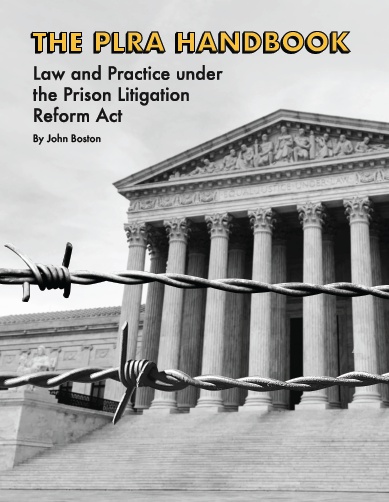The Court of Appeals in Nashville reversed a trial court ruling, and ordered attorney’s fees be awarded to Alex Friedmann, managing editor of Prison Legal News, who sued the Marshall County Sheriff’s Office after it refused to let him get copies of written jail policies and contracts unless he appeared in person.
(Read the ruling: Alex Friedmann, et al. v. Marshall County, TN, et al.)
Friedmann wrote a letter to the sheriff’s department requesting copies under the Tennessee Public Records Act of certain jail policies and contracts. The sheriff’s department told Friedmann that he would have to make his request in person. “This email does not deny Mr. Friedman[n] the records, but imposes a condition that he come to the jail for them,” wrote Terry Wright, assistant administrator at the Marshall County Jail in her response.
The appellate court said the trial court’s analysis that Wright’s response did not constitute a violation of the Public Records Act was in error.
“In construing TPRA, we have previously held that a citizen does not need to make a physical appearance in order to make a records request,” the court wrote (Waller v. Bryan, Tenn. Ct. App. 1999).
“…As we explained in Waller, ‘[i]f the citizen requesting inspection and copying of the documents can sufficiently identify those documents so that [the records custodians] know which documents to copy, a requirement that the citizen must appear in person to request a copy of those documents would place form over substance and not be consistent with the clear intent of the Legislature,’
“Although the trial court did not consider the Sheriff’s Office’s initial responses to be denials of the records per se because such responses merely imposed a condition of personal appearance, the imposition of such a condition was not permissible.”
In remanding the case to the trial court for an award of attorneys fees, the appellate court said the Chancellor J.B. Cox abused his discretion in denying fees to Mr. Friedmann.
After the initial response to his records request, Friedmann told the sheriff that state law did not require an in-person appearance and provided as support a link to the Office of Open Records Counsel website in which the office stated specifically that citizens are not required to request records in person. His attorney also contacted the sheriff. And former Open Records Counsel Elisha Hodge also emailed him, citing several Tennessee cases in support of the position.
“This is a case marked by Mr. Friedmann’s repeated attempts to access public records, and despite his own advocacy and that of his counsel and the guidance offered by the OORC, the Sheriff’s Office and the County failed in their statutory duty to promptly process his records request,” the court wrote.
The law allows attorneys fees to be awarded if a “court finds that the governmental entity, or agent thereof, refusing to disclose a record, knew that such record was public and willfully refused to disclose it…” [T.C.A. 10-7-505(g)]
The appellate court noted that the standard by which courts have measured “willfulness” under the statue has varied. It cited the appeals court in The Tennessean v. City Of Lebanon (2004), which rejected that the statute meant there must be elements of fraud, sinister motive, dishonest purpose, ill will or similar intent in denying records.
“We agree that a heightened showing of ‘ill will’ or ‘dishonest purpose’ is not necessary in order to establish willfulness under the statute. As noted by The Tennessean court, the majority of cases discussing willfulness under the Act have analyzed the issue in terms of the law’s clarity at the time a records request is made, even in spite of references that the willfulness standard is one synonymous to a bad faith requirement.”
“….To the extent that a determination of willfulness under the state is a ‘bad faith’ inquiry, that inquiry should focus on whether there is an absence of good faith with respect to the legal position a municipality relies on in support of its refusal of records.”
The sheriff said he was relying on the county attorney’s advice. But the court did not buy that and said, “Given the state of the law and the communication of that law to both the Sheriff’s Office and the County Attorney, Appellee’s failure to comply with Mr. Friedmann’s records request was willful.”
Judge Arnold B. Goldin delivered the opinion with Judge Kenny Armstrong joining.
Judge Brandon Gibson filed a separate concurring opinion, saying that he agreed with the majority that the appropriate standard for “willfulness” under the Public Records Act is an absence of a ‘good faith belief that the records are excepted from disclosure.’ But he noted cases in which judges used different standards to determine what constituted willfulness.
“Clarity and consistency in the application of the Tennessee Public Records Act’s ‘willfulness’ standard is much needed,” Gibson wrote.







